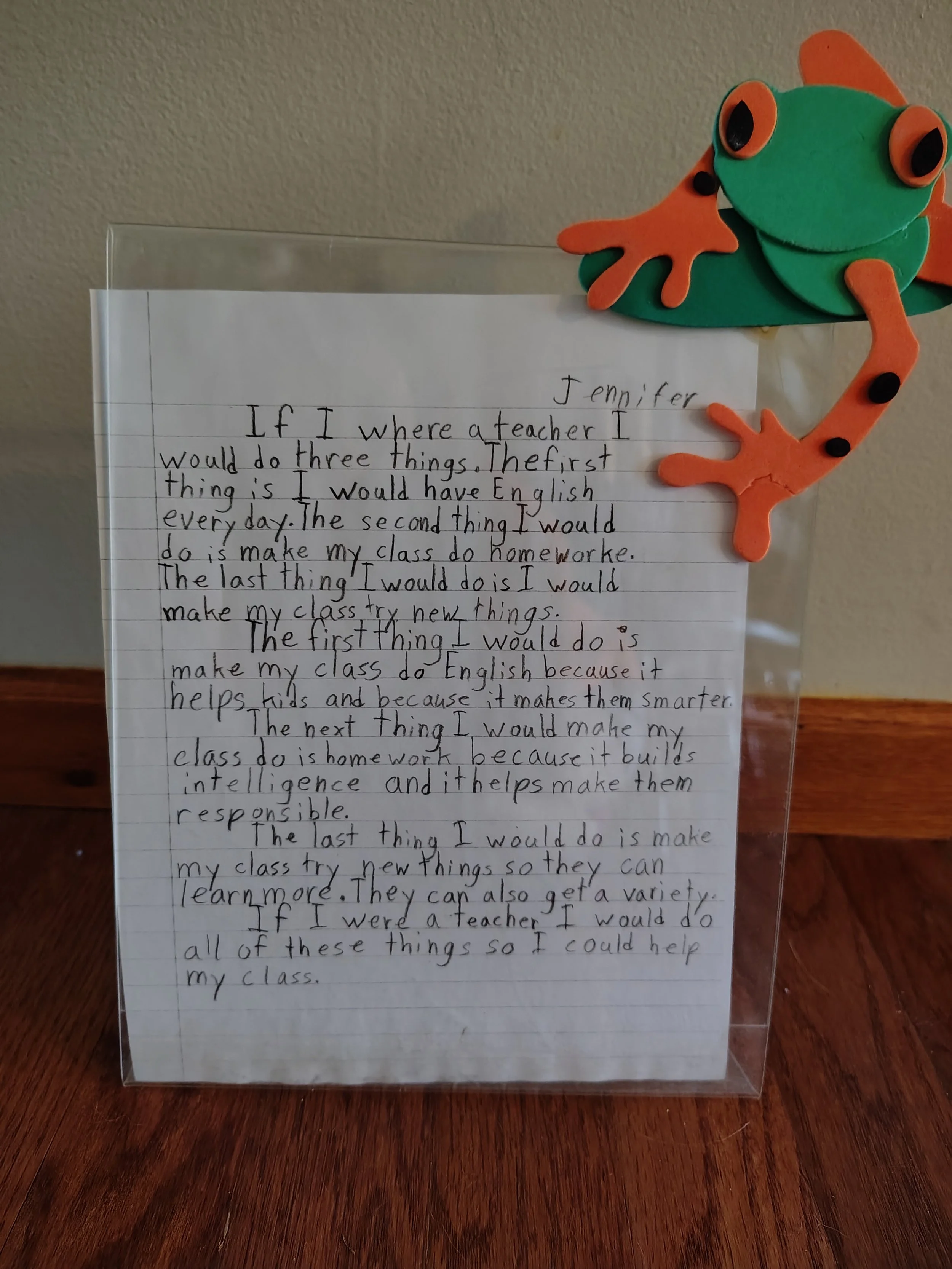
Blog
Our blog provides readers an opportunity to hear from the Advance Illinois staff and partners on education policy issues affecting Illinois students and beyond.
Federal Impact—Resilient in the Face of Cuts
When Jennifer Smith was a third grader, she had a clear view of the priorities that would drive her as a future teacher.
She would hold English everyday – less so the language, she explains, but for the skills language arts cultivate and exercise in critical thinking, grammar, in analysis, in effectively communicating.
She’d give homework, “because it builds intelligence and makes (students) smarter,” she said in a short essay she had written as an elementary school student.
And she’d make sure her class tries new things, “so they can learn more. They can also get a variety.”
Decades later, Smith still holds onto these concerns (and has accumulated others), today working as a middle school science teacher who believes education should be immersive, relevant, and empowering. And her prescient essay has come along, too, often found in her classrooms over time.
In recent months, however, federal funding cuts have made it increasingly difficult for her to maintain the high standards she sets for herself and her students. She persists, nevertheless. Three professional development (PD) programs she was scheduled to attend this summer—focused on social-emotional learning (SEL), bioengineering, and science instruction—were canceled due to revoked grant funding from the National Institutes for Health and the National Science Foundation. One research project in particular would have explored literacy in the science classroom. These PDs weren’t just enrichment; for someone who pours hours into preparing for lessons, they are essential to Smith’s teaching practice of making science real and relevant for her students.
“When those opportunities disappear, it’s not just me who loses, it’s them,” she said.
Her approach to teaching is deeply hands-on and inquiry-based. She teaches 6th and 7th grade science from a portable classroom with no running water, yet she still manages to conduct full lab experiences including dissections and hydrology experiments by coordinating with colleagues to borrow lab space during their prep periods. Where another teacher might throw their hands up in such a predicament and stop doing labs, Smith is determined that her students have the full experience.
Smith also regularly collaborates with university researchers at the University of Illinois, inviting them into her classroom to expose students to real-world science and career pathways. “I don’t know what tech will look like in five years,” she said, “but if I can connect my students with people and places, those relationships will be stronger than even the academic experiences I could give them.”
As a virtual mentor for new teachers across Illinois, Smith along with nearly 300 other educators were shocked when the federal government announced it was rescinding its extensions for ESSER dollars, which funded the initiative. This meant the state could no longer pay its mentors despite the agreement they had signed. Smith and her colleagues worked from March through May without compensation.
Only in recent weeks were they notified that they were going to get funding after all, receiving pay for the time they had worked. Smith, a single mother of two teenagers who is constantly juggling multiple hats and jobs, was fortunate to have not relied on the mentoring income for survival but knows that was not the case for everyone.
Despite the pressures, Smith remains committed to education. She holds three master’s degrees, is National Board Certified in science, and is currently pursuing her doctorate. She spends her summers writing curriculum, mentoring future educators, and attending PDs, when they’re not canceled. “Everything I do, even my side hustles, is about education,” she said. “Because my kids need to eat, but also because I believe in this work.”
Still, the emotional toll of the federal changes and their impact cannot be avoided. “It’s demoralizing,” Smith said. “Every week I open my email and brace myself for more bad news. I’m doing everything I can to keep the same opportunities for my students, but at what cost?”
It is the belief that small actions can make a difference that keeps her going. “I try to find one thing each day that can have a positive impact—so my students know I care, and my community knows someone is listening.”
Bravetta Hassell is Director of Communications for Advance Illinois.


